OCR (Obstacle Course Racing) is a trend that’s growing massively globally. Several of these types of events have been around for decades, but really it’s with the growth of the larger firms such as Spartan Race that the sport has really taken off. It’s possible to race almost every weekend of the year now, and take part in events for total novices right up to those that will be a challenge for the fittest racers run over several days.
I found Spartan Race in 2012 almost by chance. After a drought in my fitness motivation for a couple of years, I was searching for a new sport to revive my fire, I found the Spartan Race website and booked my first 3-mile event with zero training. How hard can a 3-mile race really be I thought? (The answer is it's pretty tough) Now I’m a believer that anyone can finish an OCR, and it’s not just for the super fit – races are a bit like the London Marathon, at the front of wave 1 will be the sport's elite all racing for victory, then there will be waves filled with people just running for fun to enjoy that feeling at the finish line, right back to those in fancy dress raising money for Charity. So the first thing you need to do is work out which group you want to belong to and prepare adequately.
So ask yourself are you happy just to take part and finish, or maybe you would like to push yourself with a new distance? Or are you in the group of people that are out there to win.
To start with I just wanted to finish. My 3-mile race took 1hr 15, and I was shattered – BUT I loved the feeling at the finish. So I then booked up the 2 other Spartan distances – 8 miles and half marathon, with only a couple of months to train for them, knowing I would need to train!
This is my first tip on fitness, set a goal such as a race. One that is just outside of your current reach/comfort zone. I had never even run more than 6 miles on the road, so knowing I had an off road half marathon with obstacles in the diary (running for charity) meant I was focused on training hard, weight loss, and nutrition. Of course I started running, but I knew I needed more – Obstacle Racing involves a lot of strength work, and bodyweight challenges – so I looked online and found a local Bootcamp – Bootcamp Revolution in Rayne Essex.
BC Rev was just what I needed as they had an outdoor military style assault course, perfect for training for races. Additionally, all the training was done outdoors (whatever the weather, great for cold weather conditioning) and I personally find gyms stifling – I like being outside. My wife is not as into fitness as me but I persuaded her to come along – and from week one we were hooked – both having different goals and standards but able to train side by side in a fun way! Quite quickly we were training 4-5 hours per week.
The training sessions are different every time, interlacing strength and cardio work (think variations of HIIT) so it keeps the body and mind on its toes! You will never get bored, the sessions generally involve bodyweight exercises but also working with irregular sized weights – car tyres/tractor tyres/barrels and this is great for building usable strength as you are constantly varying the muscle groups in use rather than one set fixed movement or action. Combined with the use of the assault course for skill training – monkey bars, ropes and walls to climb etc - it’s an exciting and dynamic way to train using natural, functional movements.
In 2012 I raced just to finish each distance as I was starting out, for 2013 I made my goal to finish well – and compete. I worked hard through the year and by May had already completed a 20 mile OCR (World’s longest), building up to push hard through the Spartan Race UK series and finish in 6th place overall male. Going into 2014 I raised the bar higher still and focused on getting a podium finish as well as completing a number of Ultra events (50 miles+ or 24-48 hour non-stop events) so the training plan was definitely working!
My next tip is keeping your training variable. I like the outdoors, I could not rack up the mileage on a treadmill, I’m highly motivated but for me it needs to be exciting. Quite often even on a dark rainy winter’s night, I’ll ask my wife to drop me off 10+ miles from home so I can run back. Despite how hard that is I have no option but to push and that motivates me to get home faster and push my pace!
I think alongside a dynamic training plan nutrition is vital. When we started at BC Rev we had been dieting and lost a lot of weight, however, we then struggled for energy during hard back to back training sessions. It was actually during one of the BC Rev 6 week programmes we learnt about the value of adding snacks through the day and the timings of our food intakes – and in fat by eating MORE we continued to lose body fat, gain muscle and have the energy to train hard.
I’m a huge believer in supplements. For the beginner, the first step is using Whey Protein as a recovery aid. Protein is not just for people that want to build huge biceps as often people think – but it’s a vital aide to help your body recovery so you can train again, and harder! Moving on from that we added Creatine into our shakes and now both my wife and I are regularly reliant on over 5/6 products to support our training and lifestyle choices. Bio-Synergy offer a range of products to help you train at your maximum, help you recover, but also to support you through everyday life and in particular supplements to help you through the more gruelling events (I’m a huge fan of the natural ingredients in ActiVeman Free Motion).
My last snippet of information is how to prepare for a race. I will cover this in more detail in the future, but you want to test everything. How well does your running kit absorb water? You will get wet in OCR and a heavy kit will weigh you down. Do your trainers have good grip? Reebok sells specialist shoes for OCR with extra tread as an example. Race Day Nutrition (a topic in its own right) do nothing new – test your race day breakfast before a training run in case of tummy upset – additionally test any bars or gels you intend to use on the day.
So in conclusion, find an event that excites you and challenges your current level. Find a training plan that you can be excited about, and stick to – build up to the event. Time your nutrition correctly, fuel right with good clean foods and support your body by using supplements. Ensure you have tested everything prior to racing and most of all have fun.
See you on the Start Line – Luke Lawrence Bio-Synergy OCR Athlete
Twitter - @LukeLawrenceOCR




